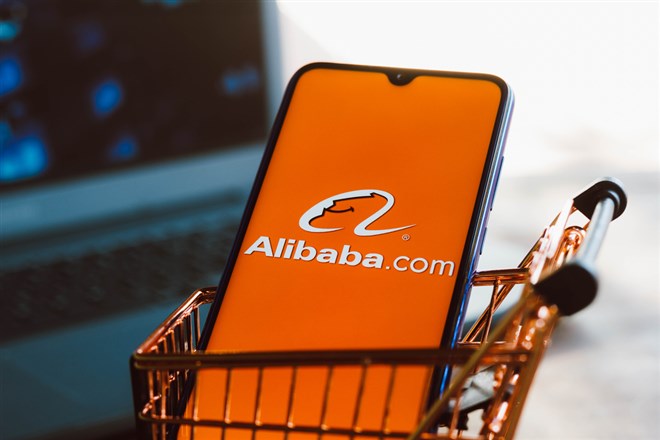
Data is believed to be the oil of the 21st century, fueling a revolution into absolutely complex and wonderful industries like artificial intelligence (A.I.), clean energy engineering and development and even insights into more effective healthcare. I mean look at the record-breaking vaccine production timelines companies were able to achieve during the COVID-19 pandemic, all thanks to super advanced machine learning models which can learn a great deal about a disease and its possible cure in days - not months-.
If data of all kind is truly the new oil, then surely the world is going to need exploration companies and equipment to source this oil, refineries to process it and turn it into useful products for everyday life correct?
Well semiconductors and the entire chip industry are making this possible through engineering advances and Moore's law, effectively acting as the refineries that store and process this data into useful insights.
What does data have to do with Alibaba?
The "new oil revolution" brought to you by data, is fueling economies like China's into what some people have called the biggest economic miracle. Yes infrastructure and opening the country to globalization has helped, but as we know small businesses are the growth engines of a country.
Alibaba Group (NYSE: BABA) is not only ahead of giant Amazon.com (NASDAQ: AMZN) in terms of user base (over 1 billion active users vs around 300 million) but also in terms of profitability and growth verticals. As investors may know, Amazon.com has very thin margins. The only profitable segment for the firm is its Amazon Web Services (AWS) business, which relies on data collection and analytics services for small and medium-sized businesses. However, Alibaba is profitable in its main retail consumer segment showcasing 5-year average operating margins to 15%. But how about its other sleeping beast of a business in data?
While AWS has 61% of its launched regions (data centers) in the NAM and EMEA regions, which are arguably of slower growth in terms of data generation, Alibaba's Cloud and globalization initiatives has placed them in the fastest growing regions of South East Asia. Alibaba's data centers collect data generated in countries - excluding China - such as: Singapore, Indonesia, Malaysia, Philippines, Thailand and others.
Alibaba also has a surprisingly entrenched presence in Brazil not only for its data center hubs collecting data from LATAM's arguably most powerful economy but also as one of the top retail consumer markets. All of this can be patiently digested via the latest Annual report.
Alibaba All in one?
Many people miss this about Alibaba, but they are not only the Amazon of China; they also operate one - of the two - largest payment systems in the country through Alipay, competing only with WeChat by Tencent.
Did you know that China has forgotten about yuan bills and credit cards? Pretty much all payments are made via Alipay or WeChat, just take a look at this documentary.
Alright, besides being the "Apple Pay" and the Amazon of China, what else are they? well, they are also the Uber and Uber Eats of China as well. Through Ele.me (which translates to "are you hungry") and Taoxianda, Alibaba is able to provide essentially what Uber does in the U.S., anywhere from personal transportation to food and grocery delivery.
These obscure businesses bought and founded by Alibaba have become household names and "Go-Tos" especially during the pandemic. Talk about some vertical.
Alibaba a major Chinese Private Equity player?
Unsurprisingly, Alibaba is also acquiring and investing in small to medium-sized businesses of all kinds in China. Whether it is providing data analytics solutions, buying outright to increase logistics and customer base capacities, or investing in the next leader within a certain region, Alibaba seems to be focusing a decent amount of CAPEX toward M&A.
This to no surprise since almost half of the board at the firm comes from investment banking and private equity backgrounds from several of the most respected firms in the U.S. like TPG, Goldman Sachs and SoftBank to name a few.
All of this is great, Alibaba has a lot of shiny trophies to display, but what's the catch?
Delayed Profitability
By acquiring these small and medium-sized businesses, management has stated that short-term margins may be negatively affected for the next 3-5 years as the new logistics and synergies take effect. Management reminds investors about the nature of "investment" and thinks of the benefits for the decades to come. During the pandemic, most of these newly acquired businesses were greatly impacted, thus declining the overall margins by as low as 2% on a Net Income basis.
This may have caused investor sentiment to decline as much as it did, adding to it the geopolitical risk stance toward China, however long-term investors may now realize that Alibaba is a sleeping giant with lots of newly acquired spark plugs ready to light up the jet fuel.
Investor sentiment turnaround?
We highly advise you read up on the latest titan of industry purchases in the stock by Michael Burry and David Tepper, both players who are known for having a very long-term view of investments which are solely focused on buying a dollar for twenty five cents or less if they can.
What is our destination
Analysts are placing this stock at an average target of $144 with a high side scenario for $180, which may be implying faster than expected profitability achievement/recovery in all these bolt-on M&A activities management has decided to take on.




